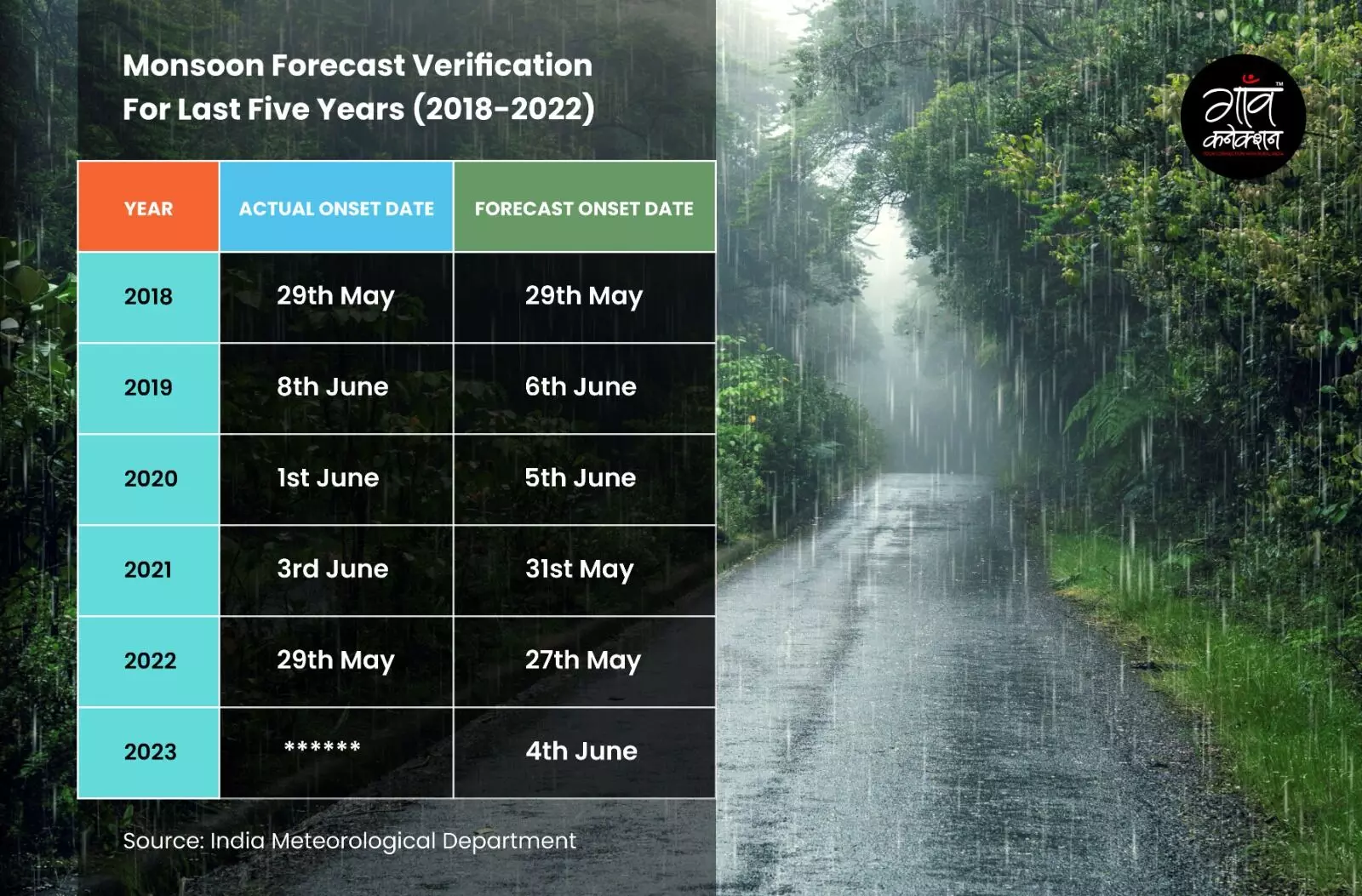The India Meteorological Department [IMD] announced on May 16 that the onset of monsoon will be delayed by four days with a model error of plus minus four days. To make matters worse, at present the formation of a cyclone in the Arabian Sea is also interfering with the timing of onset of the monsoon.
India’s apex weather agency, June 1 is the date when southwest monsoon strikes the Kerala coast, bringing respite from the scorching summer season. However, this year, till today (June 6) the southwest monsoon has not arrived so far.
“This year, the southwest monsoon onset over Kerala is likely [to] be slightly delayed than normal date of onset. The monsoon onset over Kerala is likely to be on 4th June with a model error of ± 4 days,” the IMD stated in a press release dated May 16.
Also, in a press statement issued by IMD today, a depression [low pressure area on the sea] has formed in the Arabian Sea and it is expected to intensify into a cyclone today itself.
“Considering the latest environmental features and model guidance, the depression over southeast Arabian Sea is likely to move nearly northwards and intensify into a cyclonic storm over eastcentral Arabian Sea & adjoining southeast by 1200 UTC [Universal Time Coordinated] of today, the 6th June,” the IMD statement mentioned.
Also Read: In Fresh Monsoon Update, IMD Reasserts Its Previous Forecast — With Reduced Error Margin

‘Initially onset to be slightly affected’
When Gaon Connection approached Madhavan Rajeevan, former secretary in the Union Ministry of Earth Sciences, he stated the developing cyclone is less likely to affect the onset of the monsoon in terms of intensity.
“There might be a delay of almost two days [by June 8] but at large, there will not be any major effect of the cyclone on the onset of the monsoon. The cyclone will very likely subside by June 12-June 13 following which, the southwest monsoon will proceed timely with usual intensity,” Rajeevan told Gaon Connection.
Also, Skymet Weather, a leading private weather website also stated on June 4 that the beginning of the onset of monsoon will be slightly less vigorous in Kerala this year.
“Monsoon onset will not have a thumping start over Kerala. The reason being a low-pressure area is likely to form over Southeast Arabian Sea around June 6 or 7. This low-pressure area will move in North Northwest direction and will gradually intensify into a depression,” Skymet Weather stated.
“The weather system over the Arabian Sea will restrict the flow of south-westerly winds over the Indian mainland. These south-westerly winds are responsible for the further progress of monsoon over the interior Peninsula,” it added.
Mahesh Palawat, vice-president of climate and meteorology at Skymet Weather explained that concentration of moisture-laden winds and clouds over the developing cyclone is the biggest reason as to why the onset and the initial intensity of the cyclone will get affected.
“The diversion of winds laden with moisture towards this cyclonic system will definitely have an impact on the monsoon onset but the impact shall be short lived. The normalcy of the monsoon is likely to resume towards the end of the next week (June 13),” he told Gaon Connection.
‘Rising frequency of cyclones in Arabian Sea is worrying’
Meanwhile, highlighting the impact of an adversely changing climate, Roxy Mathew Koll, scientist at the Indian Institute of Tropical Meteorology commented that this year, the onset of the monsoon is definitely not ideal.
“The diversion of wind systems away from peninsular India and towards the cyclone in the Arabian Sea will of course impede the onset of the monsoon but the impact will be non-existent beyond a few days. The onset and intensity both shall be affected initially till the time this cyclonic system doesn’t fade away,” Koll told Gaon Connection.
The weather scientist also underlined that the warming of the Indian Ocean as a direct consequence of global warming is a worrying crisis.
“The increased frequency of the cyclones in the Arabian Sea is a direct consequence of climate change. It is constantly interfering with the monsoon rainfall in India. The sea temperature, which should ideally hover at around 28 degrees celsius to 29 degrees celsius, is presently recorded at around 32 degrees celsius. In ocean temperatures, a mere rise by 2-3 degrees can be huge and chances of cyclonic activity increases,” he added.
Also Read: Will El Niño impact southwest monsoon rainfall this year? This is what experts say
As per a research article co-authored by Koll which is titled as Changing status of tropical cyclones in the north Indian Ocean, between 2001-2019, there has been a 52 per cent increase in the number of cyclones in the Arabian Sea and very severe cyclones have increased by 150 per cent in a period between.
Also, the intensity of cyclones also has increased in the Arabian Sea, by about 20 per cent (post-monsoon) to 40 per cent (pre-monsoon).
It also noted that there has been an 80 per cent increase in the total duration of cyclones in the Arabian Sea (during the last two decades). The duration of very severe cyclones has increased by 260 per cent.


















